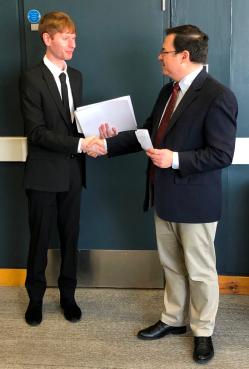Joshua Rushton
I am a social and cultural historian of early modern religious life with a focus on Italy and Catholicism. My interest in these aspects of the past began with the 4 years I spent at Warwick in both the History Department and then in the Centre for the Study of the Renaissance.
I studied History (with Italian) at the University of Warwick and then took an MA in Renaissance Studies at the same institution which included several months living and studying in Venice. The Venice Programme provided unique opportunities to engage with Venetian archives, libraries, and museums in my studies. From Warwick I took my interest in Venetian history further through a PhD. My PhD was funded by the AHRC (through WRoCAH) and was awarded by the University of Leeds in November 2023. My thesis (soon to be available Open Access) examined the relationship between sacred immanence and Catholic devotional culture in early modern Venice. This project is the basis of my in-progress book under the working title Encountering the Sacred in Early Modern Venice, 1500-1800.
In December 2024 I took up a year-long Visiting Research Fellowship in the School of History at the University of Leeds. For the 2024/25 academic year, I will be Lecturer in Early Modern History at the University of Manchester. I am currently developing a new project which examines the relationship between Catholic Renewal and the environment in early modern Italy. This project will focus understanding how religious reform transformed ideas about and engagement with natural environments in everyday devotional life. I recently published a journal article (Open Access) on post-Tridentine miracle culture in Renaissance Studies and am working on a second article that examines the emotional dimension of early modern Catholic shrine formation.
I am happy to chat to any prospective students interested in MA or doctoral programmes or any shared research interests more generally! Feel free to get in touch at Joshua.Rushton251@gmail.com

Collecting prizes from the Renaissance Centre's Director, Prof David Lines. Details here.
